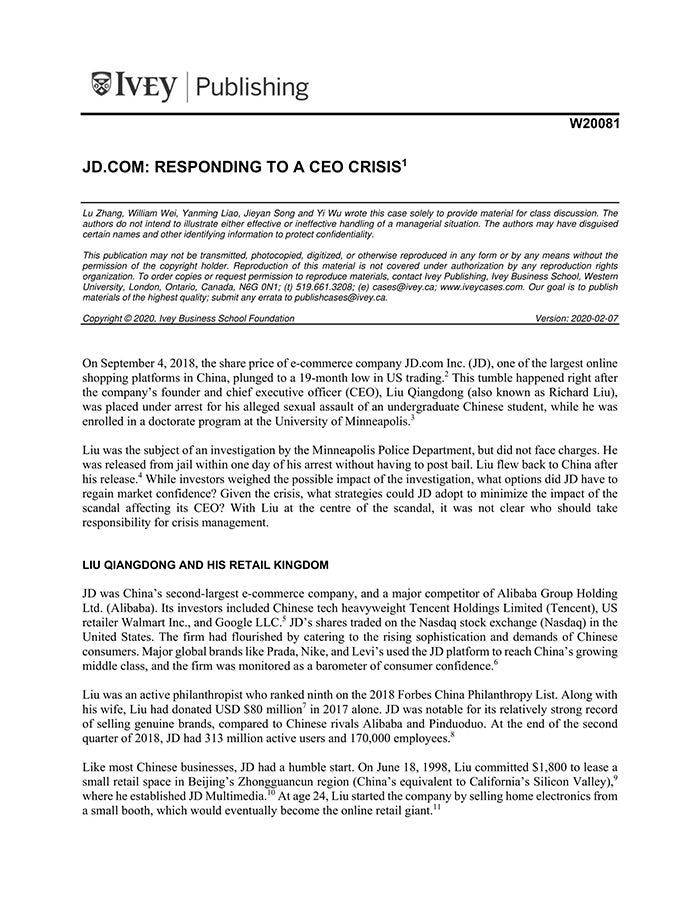JD.Com: Responding to a CEO Crisis
受取状況を読み込めませんでした
In August 2018, the founder and chief executive officer of JD.com, one of China's largest e-commerce sites, was accused of sexual assault and was arrested. He denied wrongdoing and was released less than a day later. One week after his return to China, JD.com's share value hit a 19-month low. In November 2018, the company announced that its customer base had shrunk for the first time since 2014. The impact from the investigation into the alleged assault was unclear. However, the incident took place against the backdrop of the Me Too movement, a time when both traditional and social media were used to publicly launch accusations of sexual harassment and abuse, often against powerful celebrities. The sexual assault accusation complicated the almost singular level of power the founder had over his organization. According to JD.com's corporate bylaws, no board meetings could take place without his presence. What options did the company have to regain market confidence? What strategies could JD.com adopt to minimize impact from the incident? With the founder at the centre of an international scandal, who was responsible to oversee crisis management at JD.com? Lu Zhang is affiliated with Inner Mongolia University of Technology. William Wei is affiliated with MacEwan University. Yanming Liao is affiliated with . Jieyan Song is affiliated with Lanzhou Jiaotong University. Yi Wu is affiliated with University of Alberta.
【書誌情報】
ページ数:7ページ
サイズ:A4
商品番号:HBSP-W20081
発行日:2020/2/7
登録日:2020/10/19


